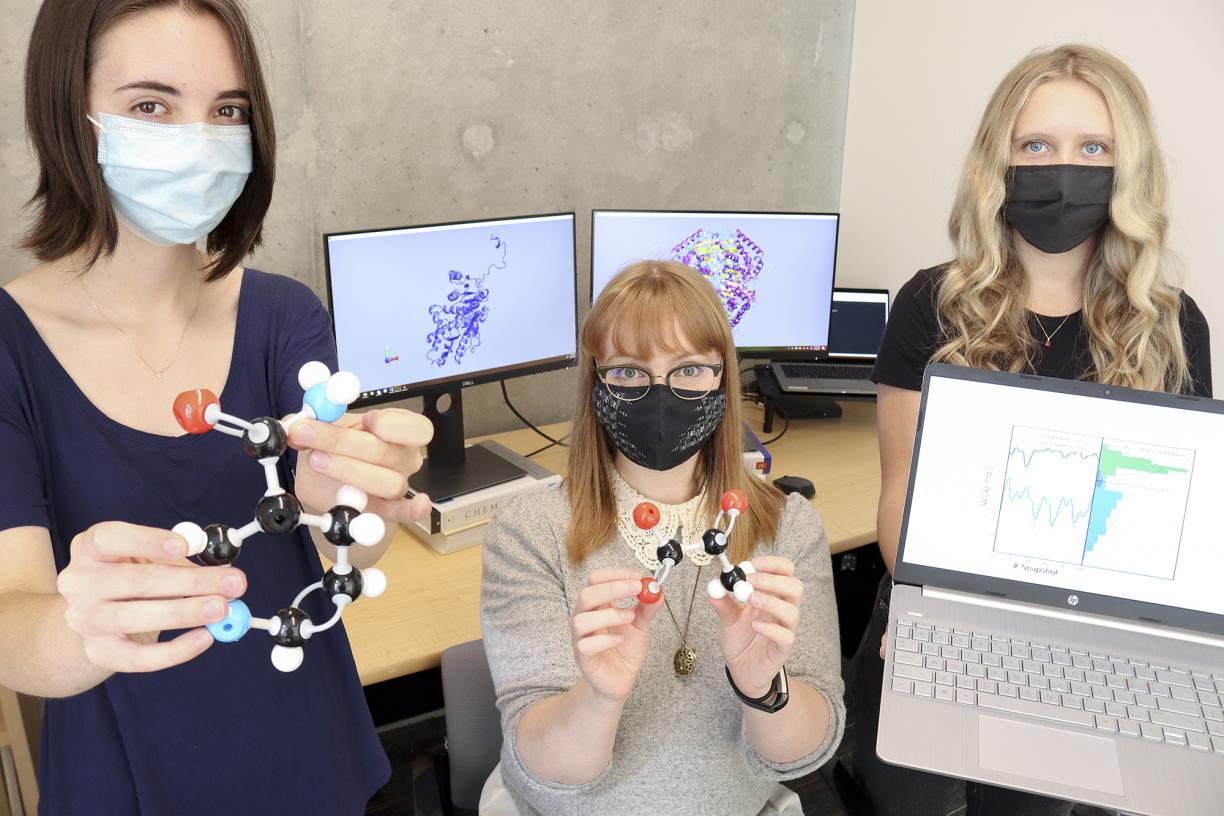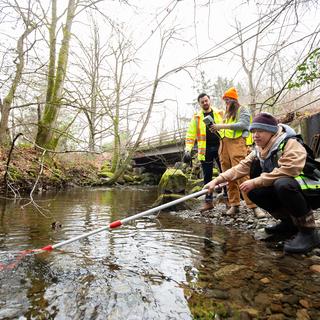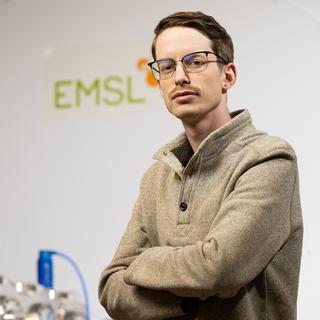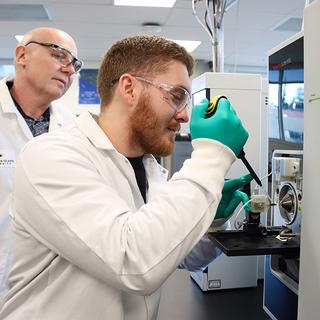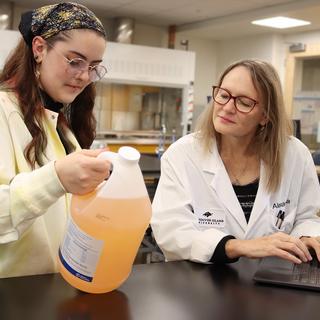Chemistry professor Dr. Heather Wiebe is pursuing her research with the help of a $120,000 NSERC Discovery Grant.
Plastic pollution is reaching the deepest depths of the ocean and the impact of these contaminants on marine life that live in these high-pressure environments is unknown.
Dr. Heather Wiebe, a VIU Chemistry Professor, is investigating the ability of deep-sea organisms to metabolize these pollutants and wants to shed light on how these organisms cope and survive in high-pressure environments.
“Human pollution, like microplastics, is now reaching the lowest levels of the ocean,” says Wiebe. “The deep ocean is a very different environment from what you or I experience. For one thing, the pressure down there can reach up to a thousand times what it is at sea level. We know that creatures that live in the deep sea have adapted to these high-pressure conditions, but we don’t know how these adaptions affect their proteins’ ability to do their jobs under different conditions or if the pollution is additional serious stress on these organisms.”
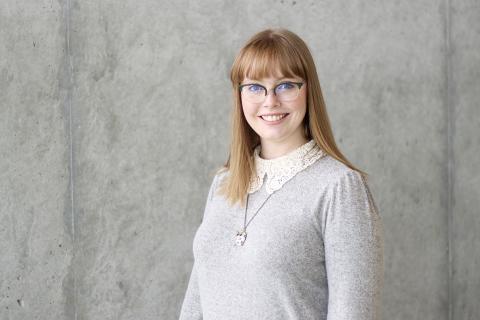
Wiebe is interested in studying the proteins that are involved in breaking down plastics inside the body to see if there is a cause for concern and whether or not these organisms can digest and cope with these added pollutants in their environment.
She specializes in computational chemistry, which is a branch of chemistry that uses computer simulations to solve chemical problems. She’ll run simulations to examine the biochemistry of organisms and how their molecules work inside their bodies, particularly how their proteins respond to pressure.
Her research will compare proteins from organisms that live in shallow water to those that live in deep water. She says proteins have very specific three-dimensional structures and applying pressure to the proteins of marine life that live in normal pressure environments will squish them down and unfold them.
Wiebe says proteins are like a big ball of yarn that folds up to make a very specific structure. That structure allows the proteins to do its job inside the body. If you take the proteins and squish them, they are going to unfold, which is why high-pressure environments are bad for living things.
“When a protein encounters a high-pressure environment they go from this complicated three-dimensional structure to basically a wobbly kind of mess of string. This means the protein can no longer do its job and the organism will suffer,” says Wiebe. “What’s fascinating is that you have these organisms that live in really high-pressure conditions, but their proteins are completely fine because they have these evolutionary adaptions that have allowed them to resist pressure change somehow.”
Understanding how these proteins work can help scientists design pressure-resistant proteins which can have useful industrial applications, such as in food processing and the pasteurization process.
Wiebe has received a Natural Sciences and Engineering Research Council of Canada (NSERC) Discovery Grant, $120,000 over five years, and a $12,500 Discovery Launch Supplement to help pursue her research.
“It’s a good acknowledgment of the type of work that we’re doing here at VIU to have this big award from NSERC,” says Wiebe. “It’s excellent for students because now that I have this grant funding I can involve many more undergraduate students in my research than I would have been able to normally. This really allows for much more student involvement and getting them exposed to research early in their academic journey.”
VIU Chemistry student Jocelyn Maguire worked as a research assistant on the project this summer. She conducted simulations comparing the proteins of deep-sea organisms and shallow-water organisms
“This gave me the opportunity to learn about protein simulations and work with computers in a way that I wouldn’t get to in a typical chemistry class. It allowed me to apply what I learned in class to something new and exciting,” says Maguire. “Doing summer research experience provided me with context of where my studies could take me.”
-30-
Media Contact:
Rachel Stern, Communications Officer, Vancouver Island University
C: 250.618.0373 l E: Rachel.Stern@viu.ca | T: @VIUNews

